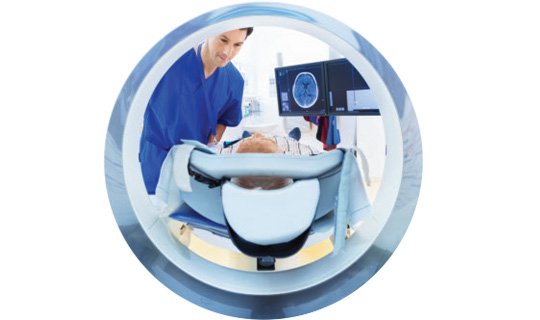
How Top Neurosurgeons at RWJBarnabas Health Tackle the Toughest Tumors
Cranial tumors are never easy to treat, but some are especially challenging. Those cases are often sent to Anil Nanda, MD, MPH, and the team of expert neurosurgeons affiliated with RWJBarnabas Health (RWJBH). Recently, for example, there were the cases of an 8-year-old girl with an arteriovenous malformation, a bird’s nest-like tangle of blood vessels at the top of her spine that paralyzed her, and a 21-year-old woman with a hemorrhaged brain stem cavernoma. Both patients were referred to Dr. Nanda and the enhanced neurosurgical program at RWJBH. The lesions were successfully removed.
“People should know that we can take care of very complicated neurosurgical issues with good outcomes right here in New Jersey,” says Dr. Nanda, who has been recognized as a global leader in neurosurgery.
Gratifying Results
Neurosurgery services at RWJBH cover many areas, including spinal disease, stroke, aneurysms, brain trauma and more. Dr. Nanda’s specialty is surgery of the skull base, an area formed by bones at the bottom of the skull that is crisscrossed by nerves and blood vessels carrying messages and oxygen to the brain. Last fall, an especially challenging patient was referred: a 38-year-old woman whose personality had been slowly deteriorating over the previous five years. She had become hostile to family and friends, and her memory and cognition were impaired. Finally, an MRI of the woman’s brain found the cause of her problems: a 9-centimeter (approximately 3.5-inch) meningioma, a benign, slow-growing tumor that forms on membranes covering the brain.
“The tumor’s pressure on her frontal lobe—which handles cognitive functions such as planning, memory and emotional expression—was so great that it had been compacted and barely showed on the MRI,” says Dr. Nanda. During surgery, Dr. Nanda first stopped the tumor’s blood supply, then began the removal process. “After a difficult operation, the growth was entirely removed, and with the pressure gone, the frontal lobe expanded to its normal size,” he says. Three days later, the woman was sitting up and talking and her former upbeat personality had begun to return.
“It was really gratifying for our team to be able to effect such a dramatic change,” says Dr. Nanda. “Symptoms like this woman’s are often chalked up to depression or schizophrenia or, in the case of an older person, dementia,” he explains. “In such cases, it’s important to investigate possible causes in detail, sooner rather than later.”
For residents of New Jersey and the region, the good news is that excellent care for such conditions is available close to home. Says Dr. Nanda, “RWJBarnabas Health is building a team of top neurosurgeons and other experts in neuroscience that is among the best in the world.”
Learn more about New Jersey's most comprehensive neurosurgery program, or call 833-656-3876.